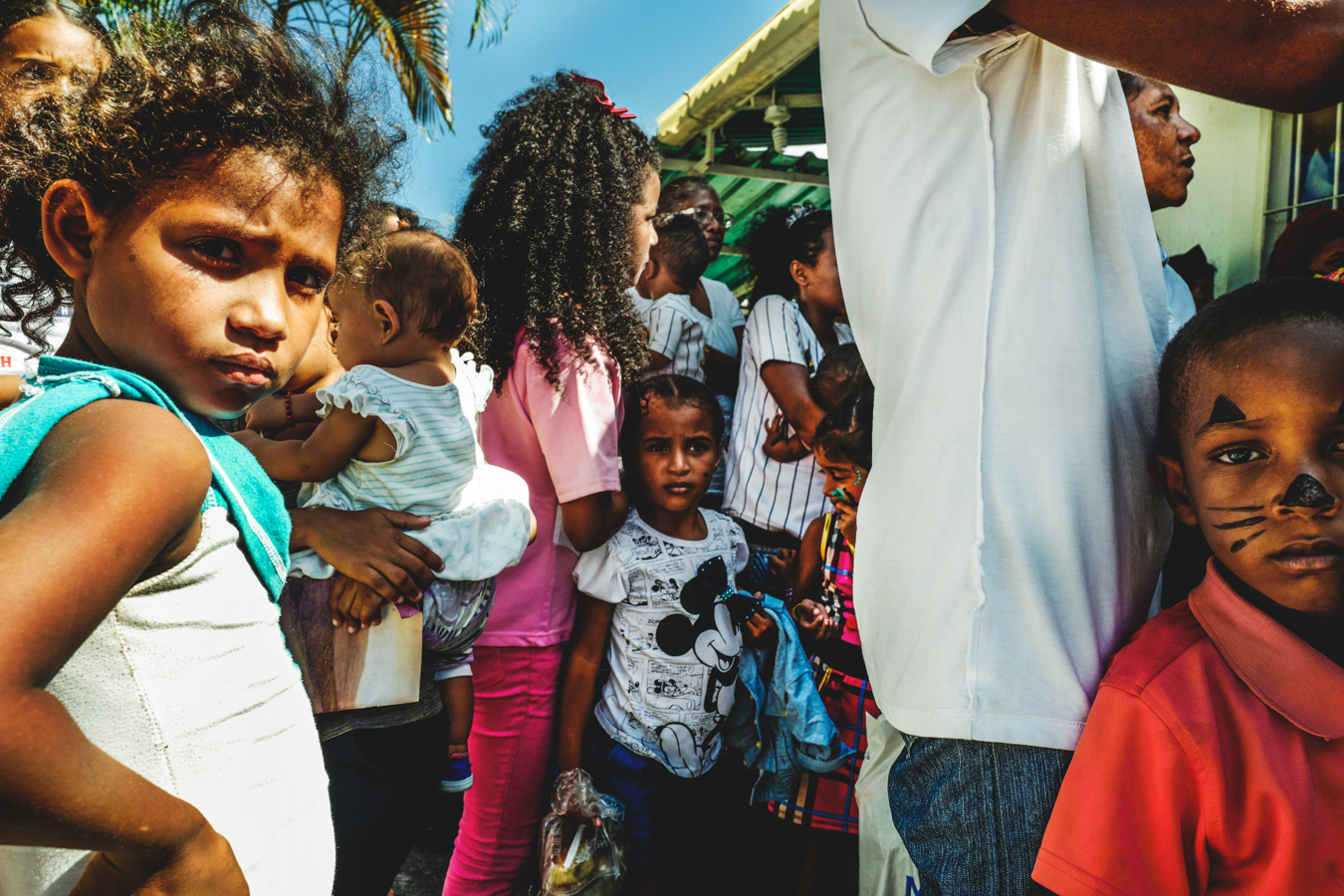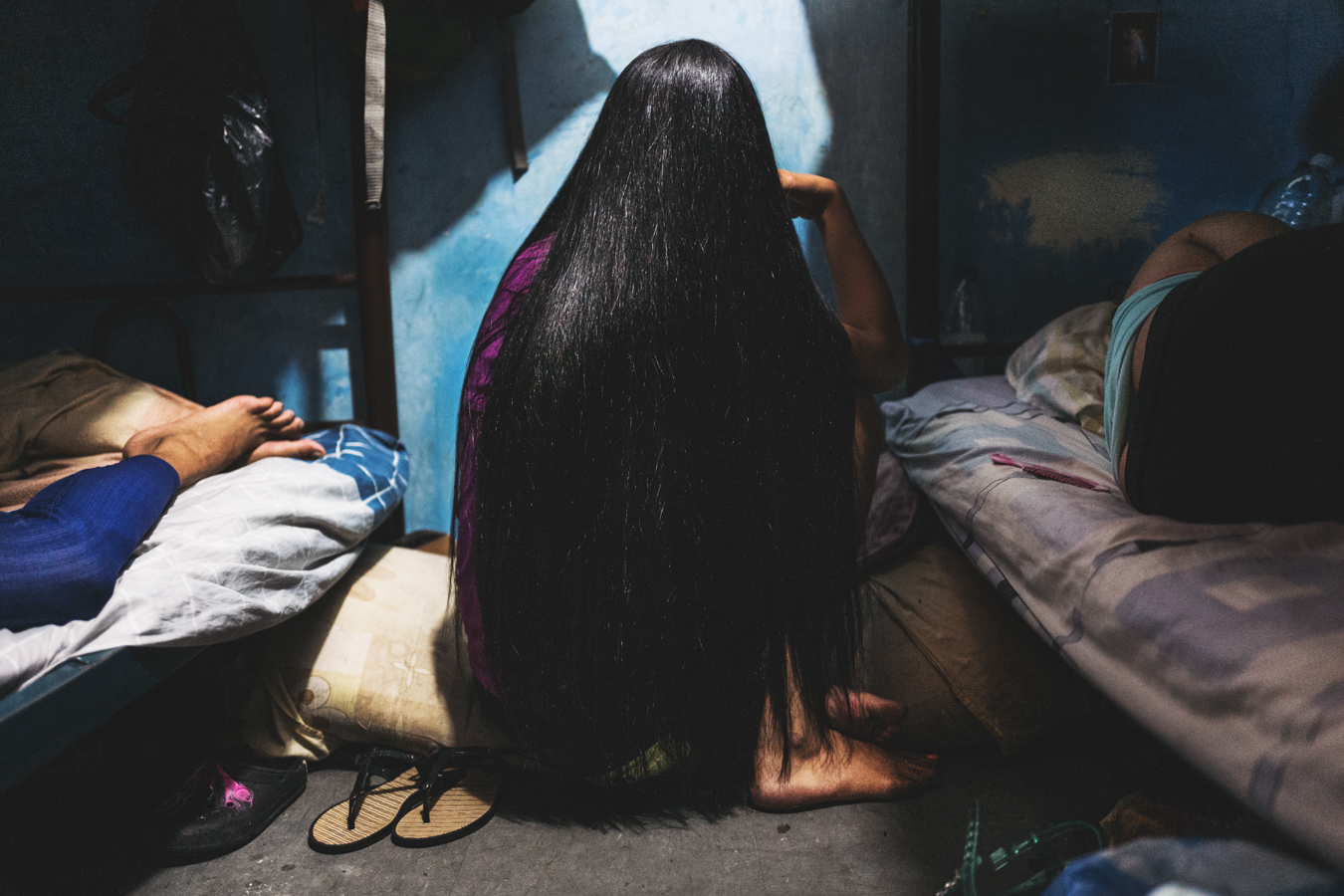Seconded By: Ioannis Galanopoulos Papavasileiou,
The crisis of incarcerated women in Latin America fuels crime and violence, disrupting family structures and affecting society. A single woman’s imprisonment has far-reaching effects, leaving dependents vulnerable without support.
Gender inequality exacerbates justice imbalances. In El Salvador, harsh penalties for abortion equate it with murder, while in Venezuela, political protests lead to imprisonment. Indigenous Guatemalan women face unfair trials due to language barriers.
Detention centers reflect dire conditions. Suspects endure overcrowded, poorly lit facilities with reported violence and torture. Transgender detainees suffer abuse due to misgendering.
Many plead guilty to escape, but post-conviction, isolation increases, with reduced visits and privileges. Female inmates receive fewer visits, relying on external support for survival.
Despite hardships, bonds of resistance and solidarity form among inmates. Upon release, women face trauma and stigma, lacking support for reintegration and often returning to crime.
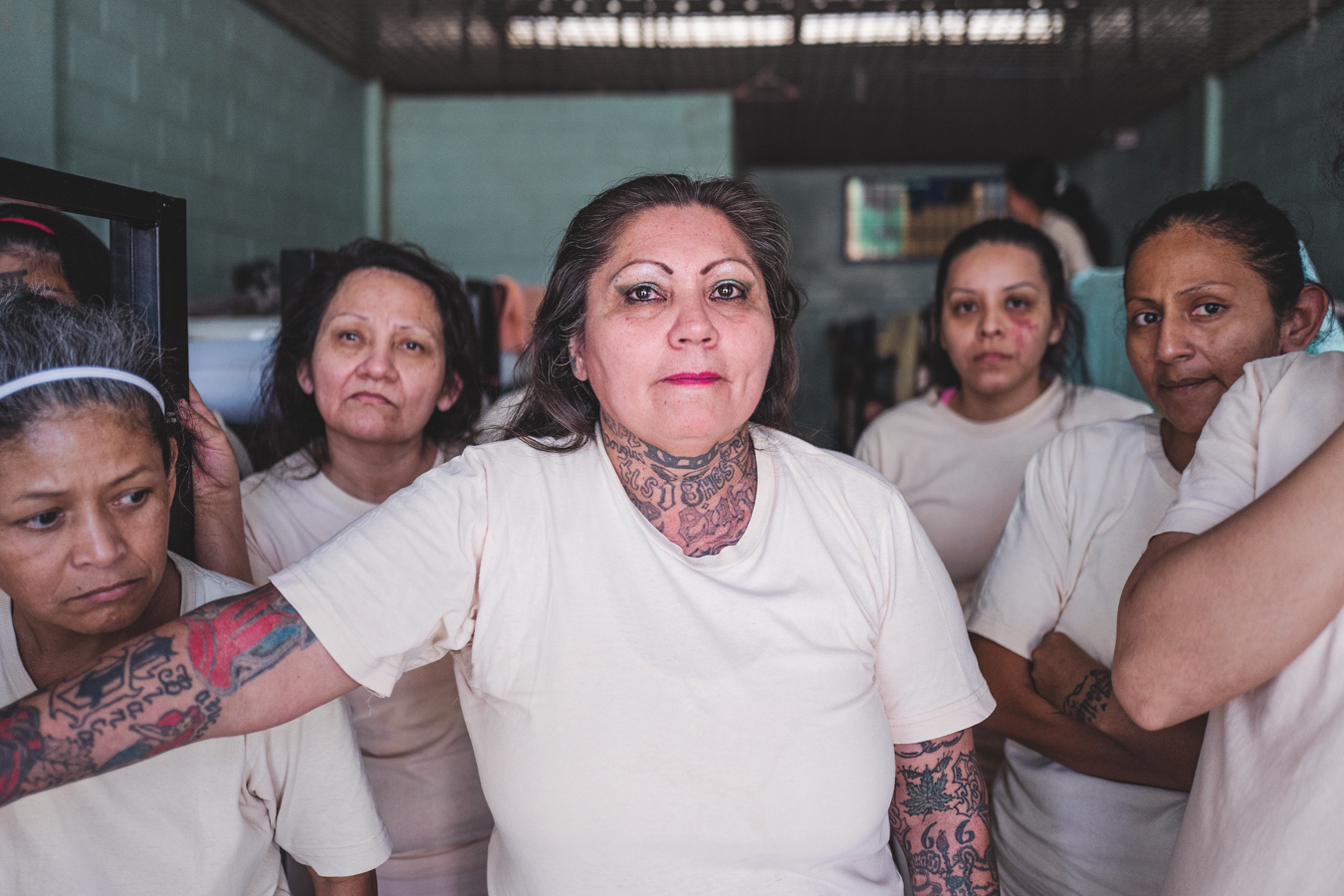
Dias-Eternos-Xposure-001.jpeg
LOPANGO, SAN SALVADOR – March 8, 2021.
Women sentenced to prison for crimes related to gang 18 inside their cell. The prison separates the women by gang membership to avoid conflicts and fights. The woman in the center, Patricia Guadalupe Macía, 50 years old, is sentenced to 102 years in prison for extortion and homicide. The 228 women in this sector cannot see their families or speak to their lawyers.
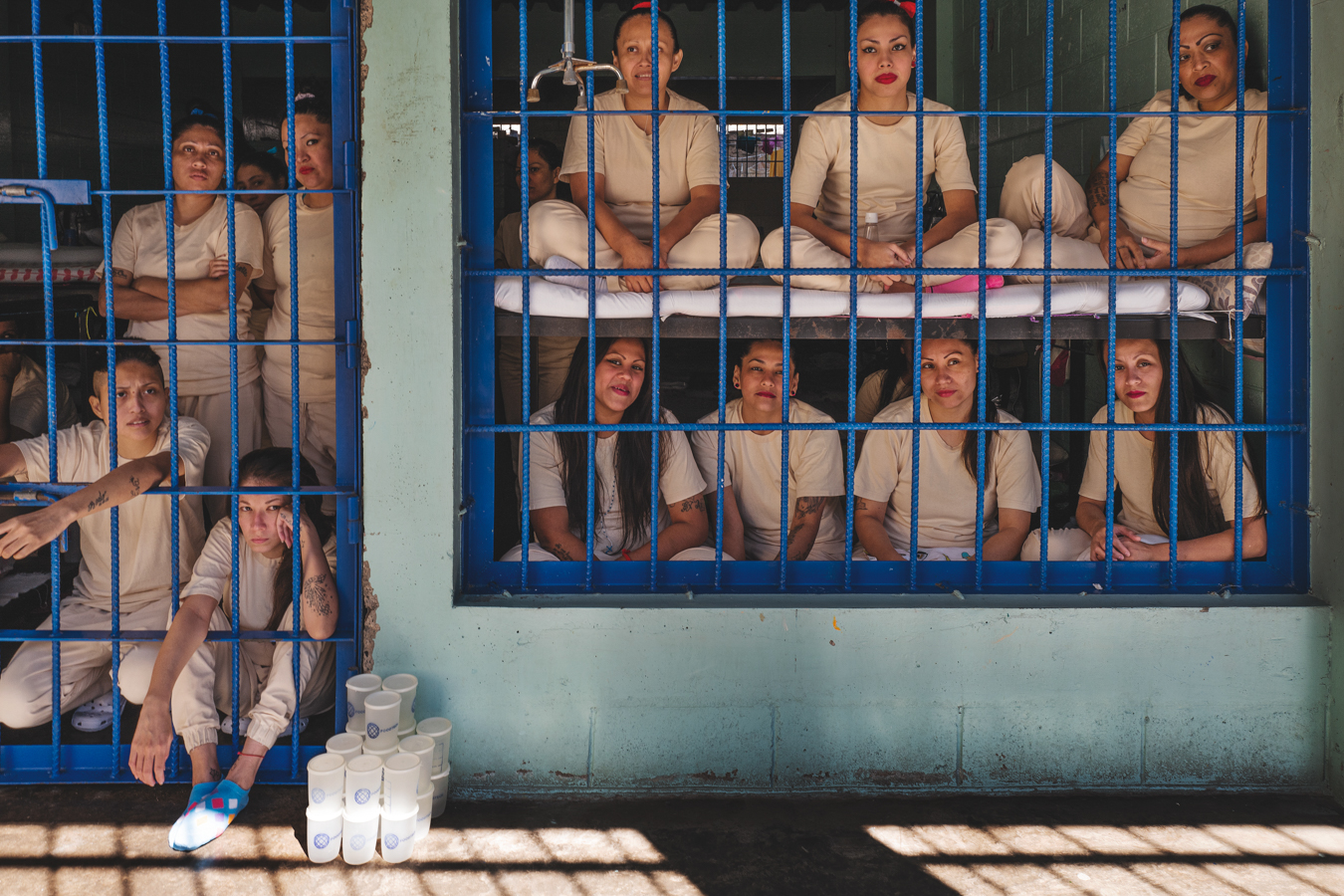
Dias-Eternos-Xposure-002.jpeg
ILOPANGO, El Salvador. March 8, 2021. Women inside their cell in sector D of the women’s prison in Ilopango. This sector is only for women who have been collaborators or active in the gang. These women have not received visitors in three years and cannot leave their cells for more than one hour daily to receive sunlight.
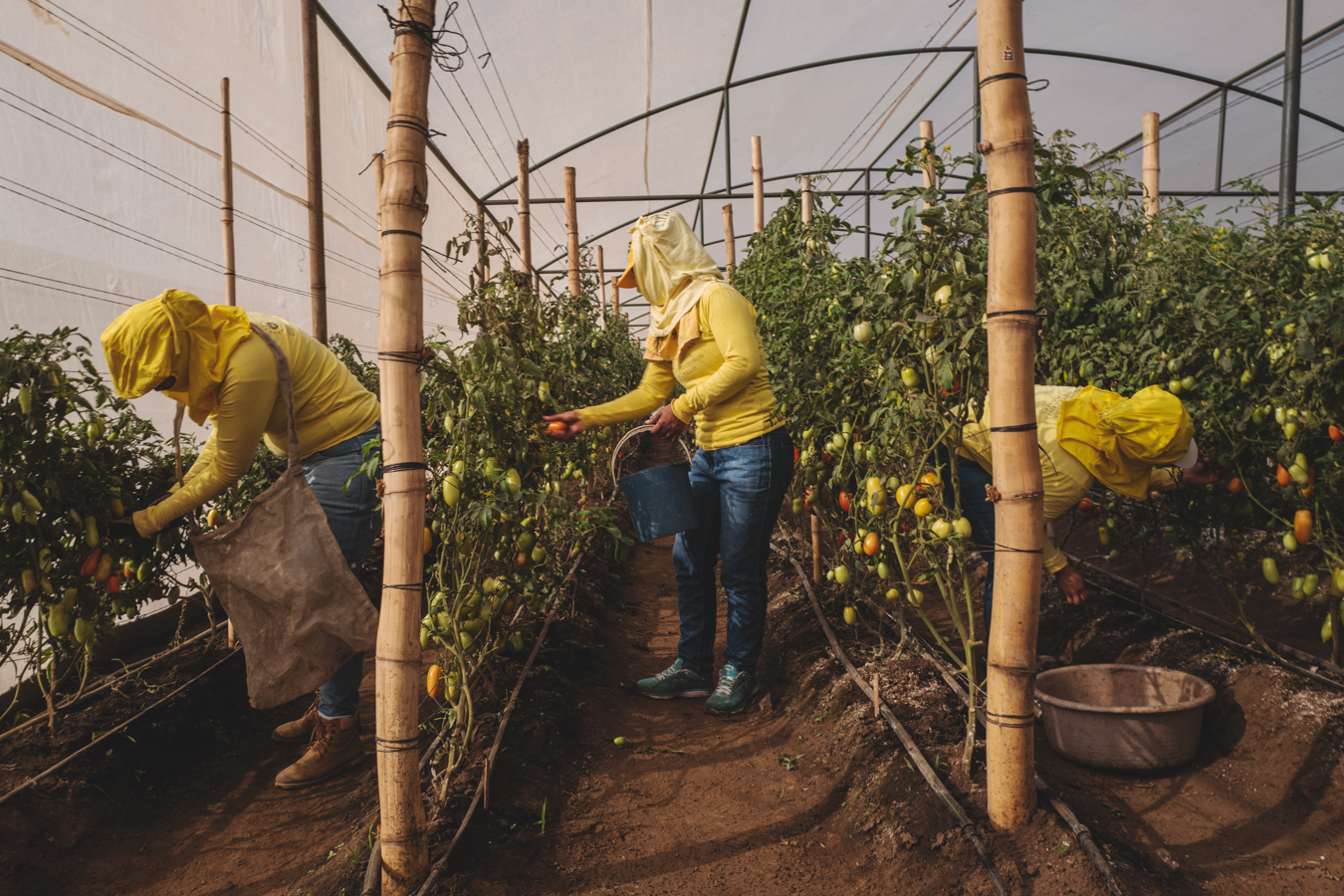
Dias-Eternos-Xposure-003.jpeg
IZALCO, EL SALVADOR – March 15, 2021.
A group of women pick tomatoes planted at the ”Granja Penitenciaria” (Prison Farm). The women here are nearing the end of their sentence and deserve to be transferred to this farm for their good behavior. They grow crops, raise animals, and can go out to see their families.
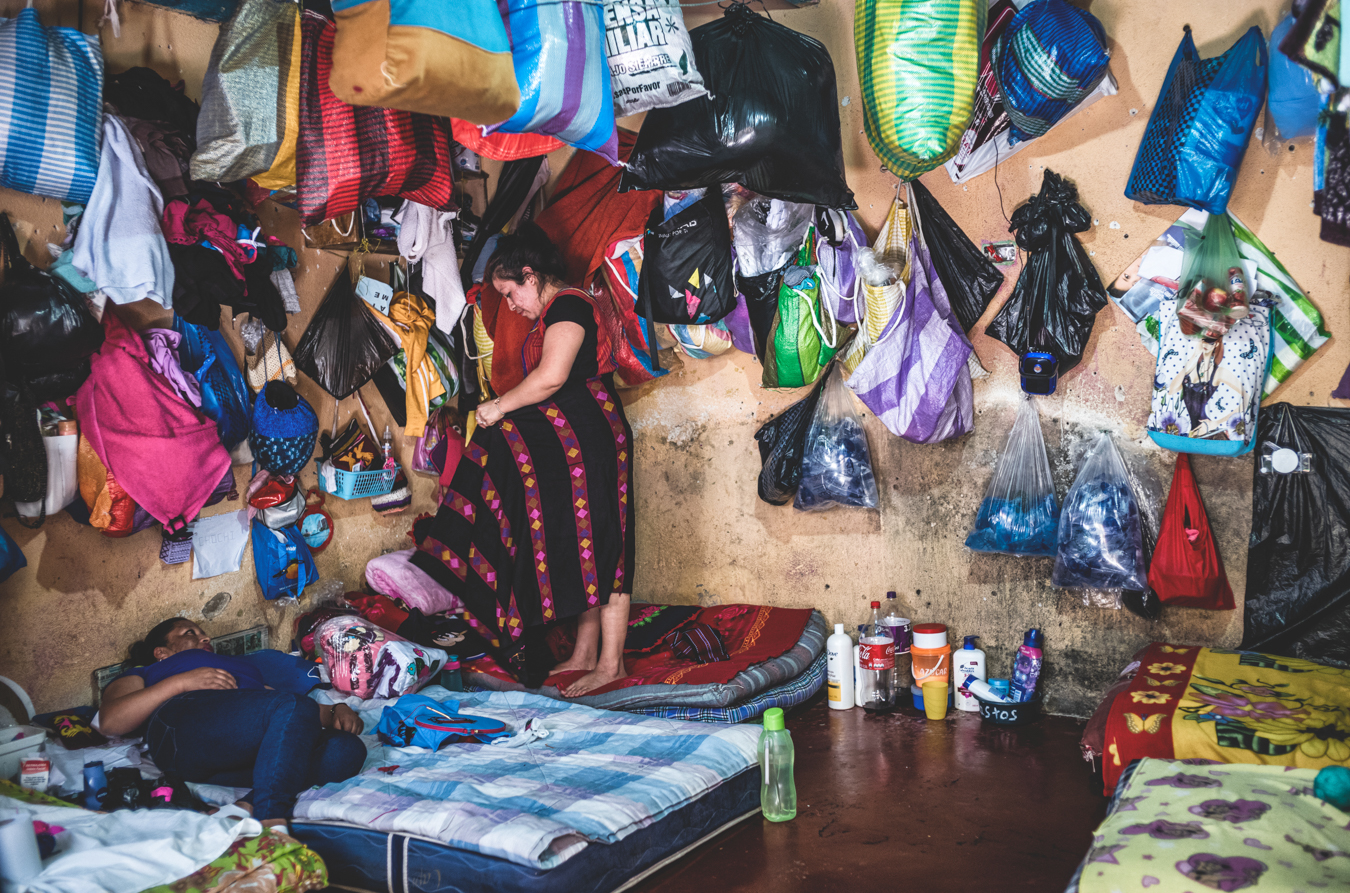
Dias-Eternos-Xposure-004.jpeg
Huehuetenango’s preventive detention center houses 7 women in total, 4 of whom are from indigenous communities in Huehuetenango, Guatemala, on March 19, 2022. Estela, 24 years old, already sentenced to 25 years for murder, is an indigenous woman wearing her typical costume. They wear them for special occasions and to attract visitors.
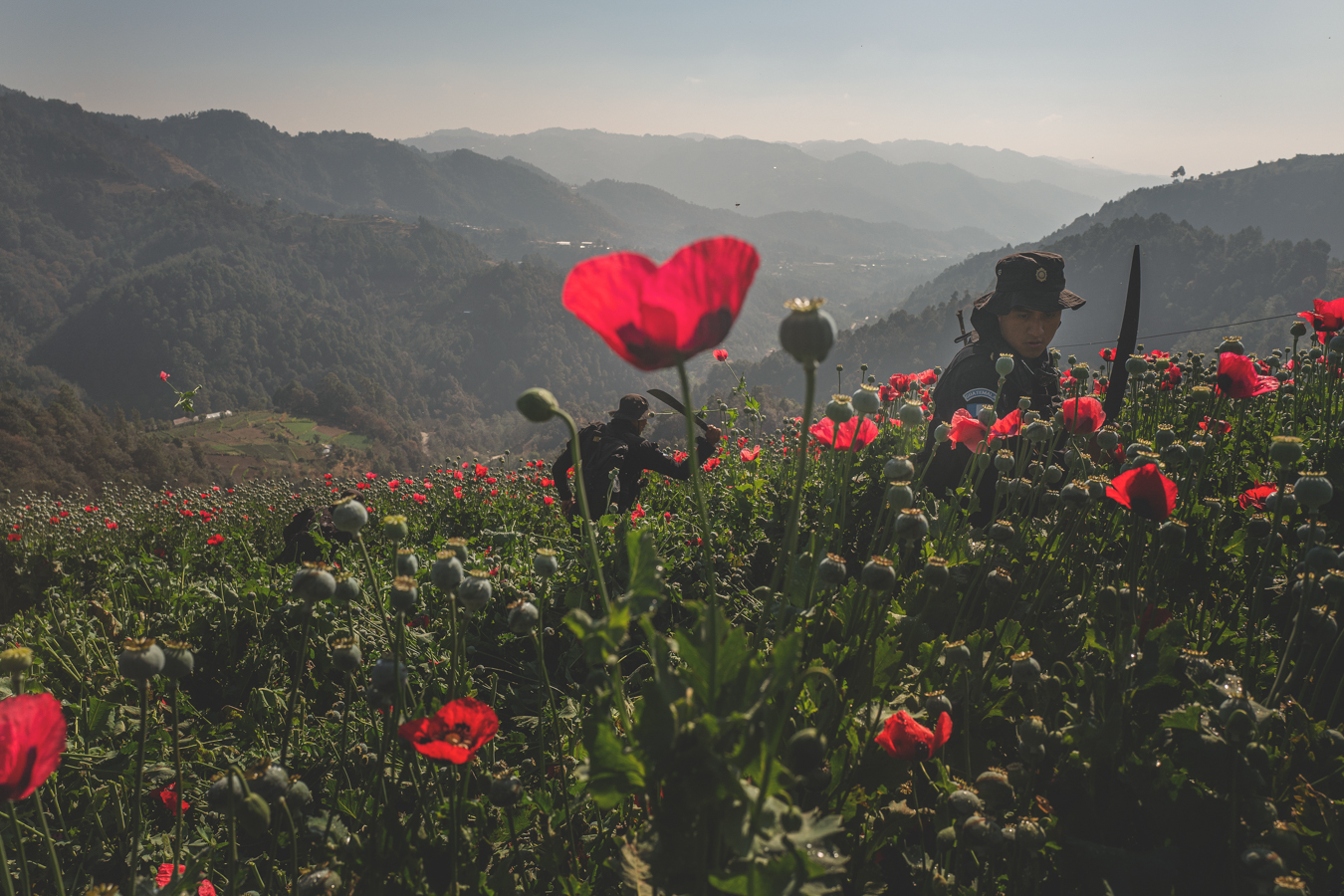
Dias-Eternos-Xposure-005.jpeg
A poppy eradication operation operated by military and anti-narcotics police in the municipality of San Marcos, Guatemala, bordering Mexico, is attempting to remove all poppies from the area on March 18, 2022. Poppy is the flower from which opium, the raw material for heroin, is made. According to the police, an ounce of opium is worth $150 and is bought by Guatemalan or Mexican drug traffickers. Families are dedicated to this illegal activity in this area.
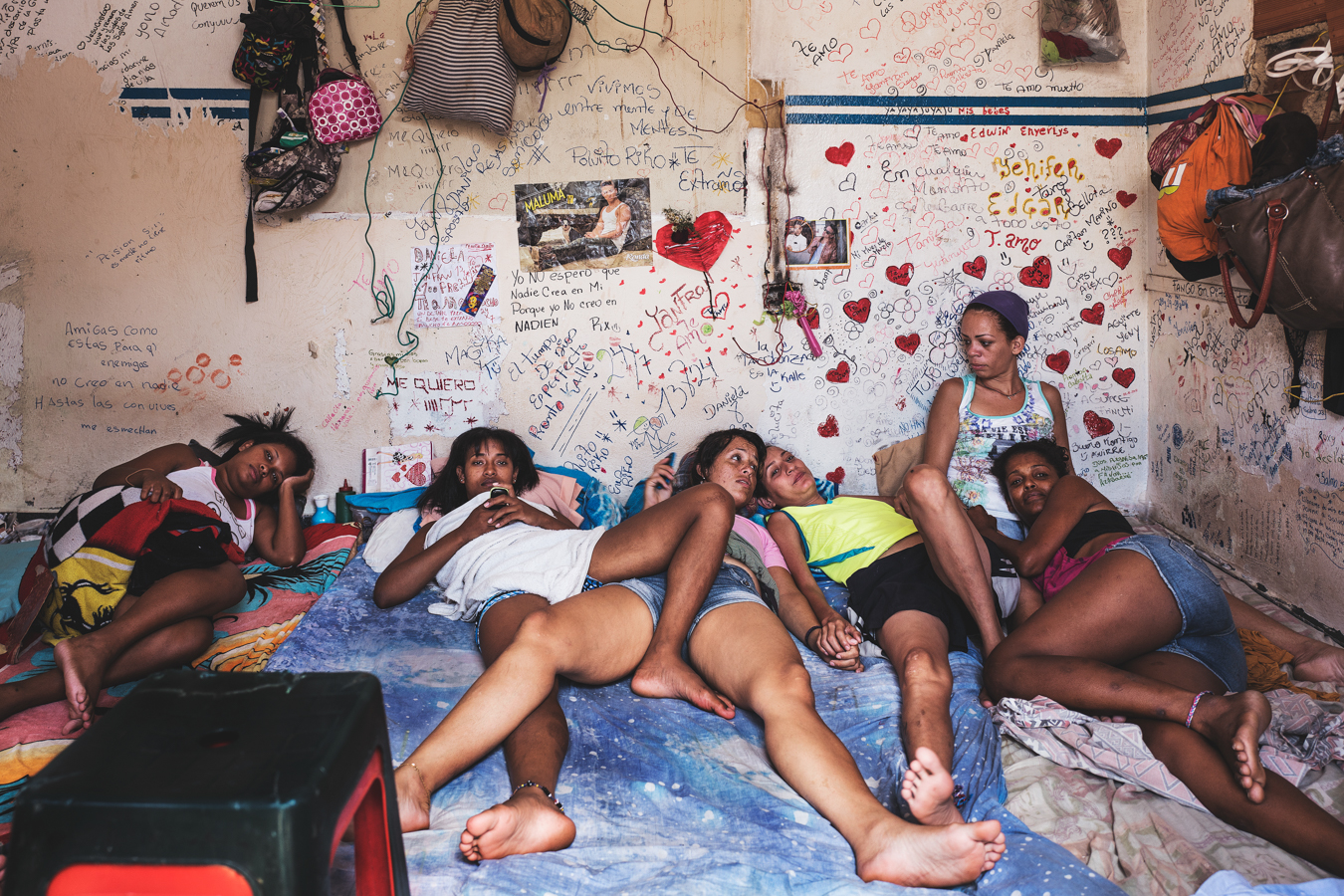
Dias-Eternos-Xposure-006.jpeg
Poli-Valencia, Venezuela. – March 2018. The women rest on the mattresses in their cell in the detention center. “Eternal Days” is the description of one of the women already accused of the crime but without the possibility of going to a State prison.
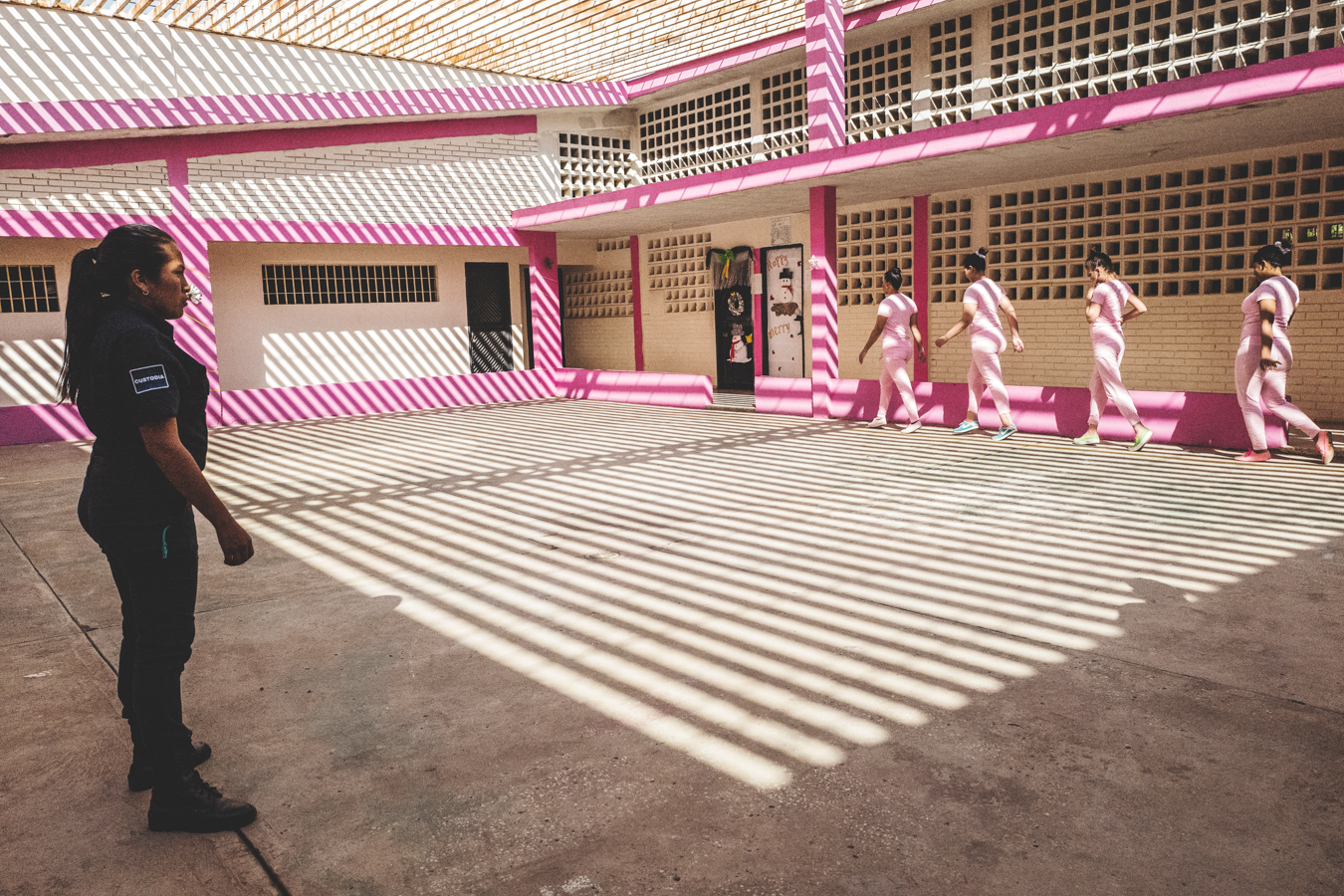
Dias-Eternos-Xposure-007.jpeg
ANA MARIA CAMPOS II PRISON, MARACAIBO. – December 2018. A group of women fix a volleyball net inside a State prison in Maracaibo. Their schedules include playing sports, receiving classes, motivational and disciplinary workshops, and arts and crafts. The purpose of these centers is to reform women and avoid relapse. They get redemptions if they behave correctly to get their sentence reduced.
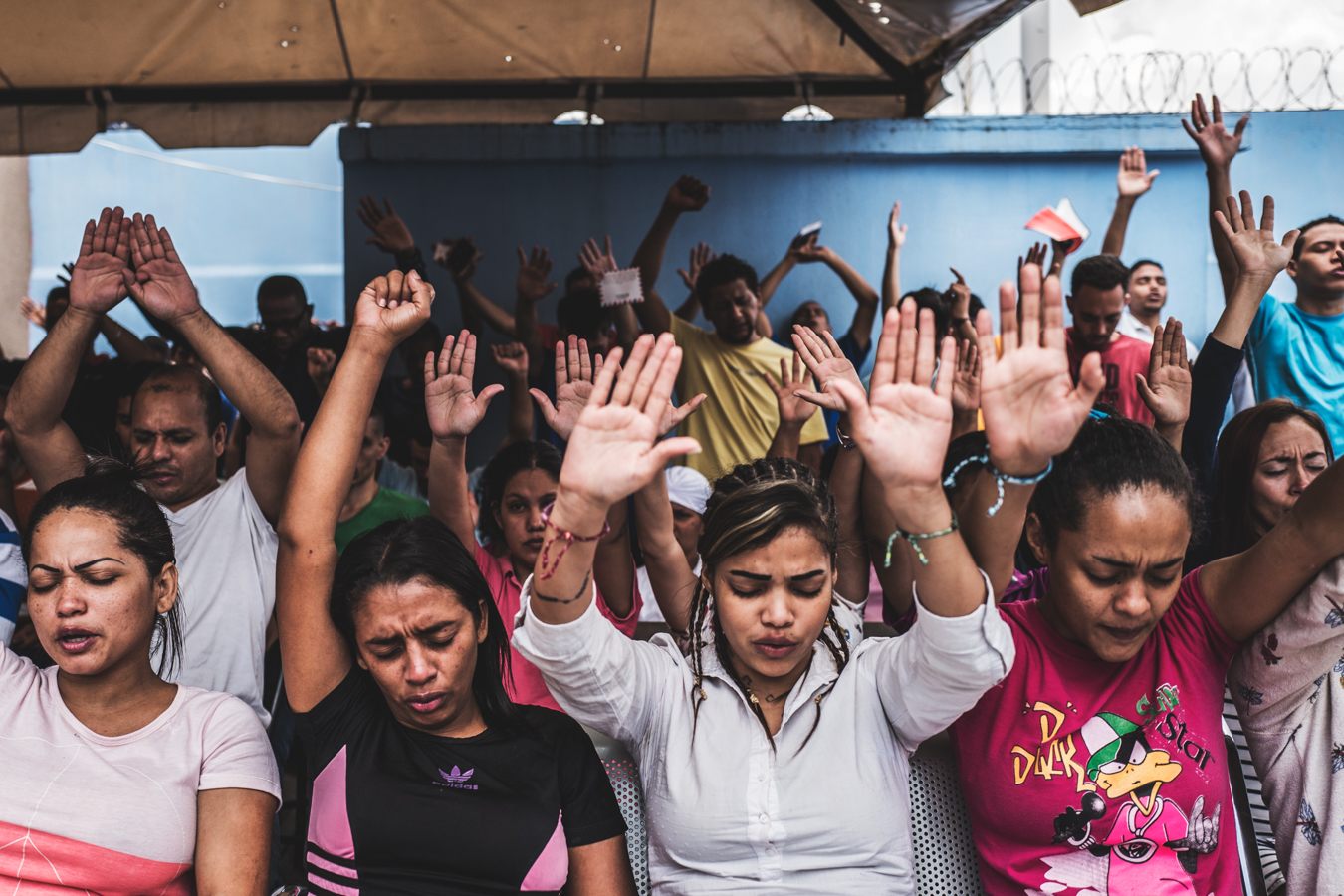
Dias-Eternos-Xposure-008.jpeg
LA YAGUARA DETENTION CENTER, CARACAS – March 2018. Detainees attend an evangelistic event inside the compound. The preacher charismatically sermonizes on forgiveness and reflection. It was followed by a religious theater play and a shared meal.

